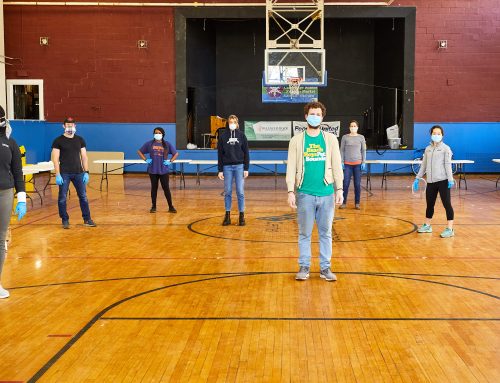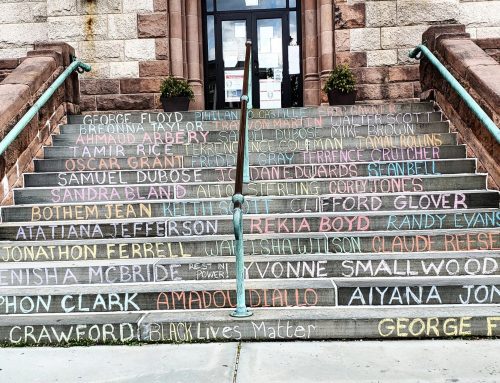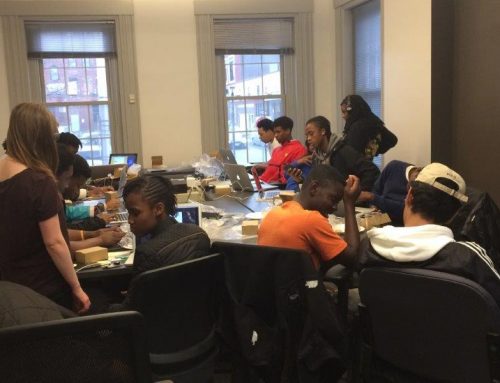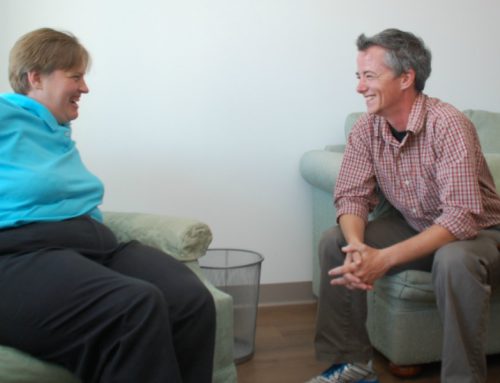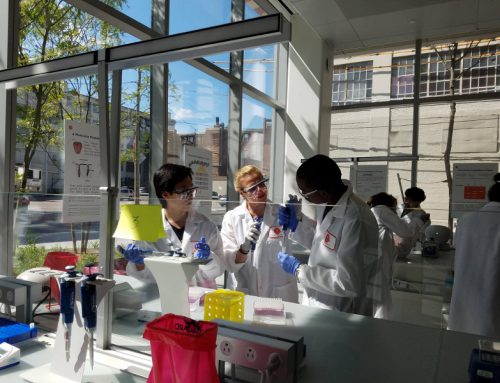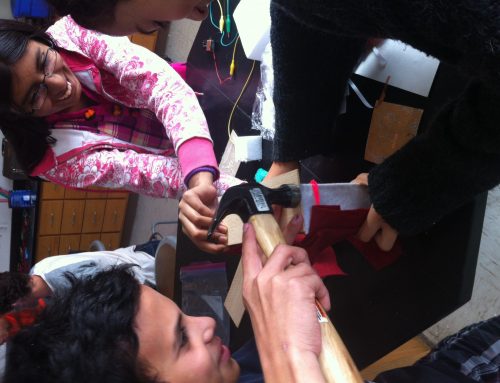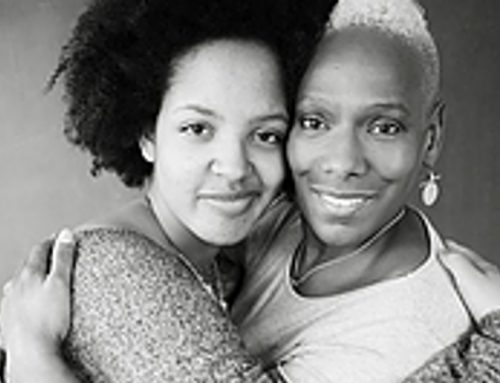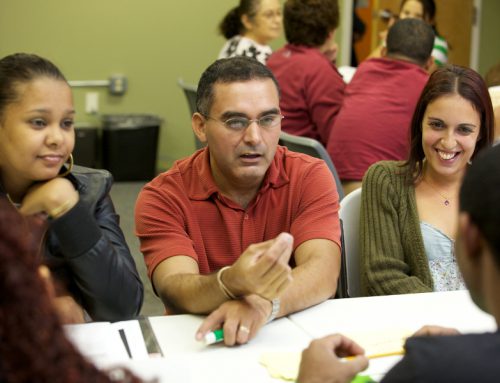Adolescent Consultation Services
A recent Foundation grantee.
ACS supports and empowers court-involved children and families by providing mental health prevention and intervention services to help them move forward in a positive direction.
Jessie*: Understanding Herself
Jessie juggles the multiple roles that define her: teenager, adopted from a foreign country, child of divorce, and transgender.
Her life began in a Romanian hospital. Jessie was later placed in an orphanage. By the time she was adopted by an American couple, she had suffered serious emotional and physical neglect, the effects of which have stayed with her. Jessie is very small for her age. It is also difficult for her to develop meaningful attachments to others.
After joining her new family, the impact of Jessie’s early life experiences began to show. She began to act out at home and in school. These behaviors put a strain on her relationship with her mother, Amy. While a certain degree of turbulence often accompanies adolescence, Jessie was struggling to make sense of her past while also trying to come to terms with her gender identity. She had no idea how to explain this struggle to Amy or how to cope with everything on her own. She started to spend her time with older kids and began to smoke marijuana heavily.
Because Amy worried she could no longer keep Jessie safe, she filed a Child Requiring Assistance (CRA) application. Jessie and Amy met with an ACS clinician who conducted in-depth interviews, both individually and together. The clinician came to better understand Jessie’s present needs. Rather than diagnosing her with a list of conditions and disorders, the clinician considered Jessie in the context of her life experience and what required immediate attention. As it turned out, Jessie was pretty “tired of” talking about being adopted and how her parents’ divorce had affected her. What she really wanted support and guidance around was how to be true to her identity as a girl.
Along with the regular strains on parent-child relationships during adolescence, Amy was facing the reality that she was losing her son and gaining a daughter. The clinician helped her process these feelings. She also educated her about some of the risks associated with being transgender, including bullying, higher rates of suicide, and mental health issues. The ACS clinician linked Jessie and Amy to separate support groups geared toward both of their needs.
Jessie is still involved with the court, but as subsequent court dates approach, she and Amy have reason to be hopeful. While Jessie still seeks out older peers and continues to use marijuana, her relationship with Amy is slowly improving. The support groups recommended by the ACS clinician have helped. Today, Jessie is happy and energetic. She feels accepted and supported by other kids in the transgender youth support group and her new therapist is a great fit for her. Her ACS clinician continues to check in and offer continued support to Jessie and Amy. Jessie is getting the support she needs to begin to build her self-confidence, make healthy choices, and work toward a positive future.
Ryan*: Driving Through Chaos
Ryan was raised amidst the chaos and violence that seemed to follow his mother, Cheryl. The men in their lives had been abusive and Cheryl was hospitalized more than once with severe injuries. They’d had to move around a lot so it had been difficult to put down roots.
Cheryl eventually found a stable job, a safe place to live, and it seemed like things were looking up. But Ryan had trouble adjusting to this new life. He began to exhibit emotional and behavioral outbursts. By the time Ryan entered high school, these outburst had become quite serious. Ryan disobeyed rules and routinely skipped school. Cheryl began to fear that she could no longer keep her son safe. She filed a Child Requiring Assistance (CRA) application with the court. That’s when Ryan was referred to ACS for a mental health evaluation.
An ACS clinician met at length with Ryan and interviewed his family members. She reviewed his school and medical records and consulted with his teachers. It became clear that Ryan’s behaviors were delayed symptoms of the chronic trauma he and Cheryl had experienced.
Ryan began the new school year at an alternative high school designed to support his needs. In time, his behavior stabilized, and he began to thrive. He even joined the high school basketball team. The structure and support of this setting, paired with the self-esteem he gained from playing his favorite sport, proved to be a winning combination. Because Ryan had made such strides, the school system began to plan for his return to the mainstream high school. Ryan’s clinician strongly advised against this plan, explaining that Ryan was at significant risk for losing the ground he had gained and reverting to old behaviors.
Upon completing her evaluation, the judge approved the clinician’s recommendation that the report be distributed to everyone who was invested in Ryan’s continued progress. His clinician is working with the Department of Children and Families to advocate for an expansion in the services Ryan and Cheryl receive. The family’s attorney informed the clinician that reading her evaluation helped him develop greater empathy for Cheryl. Ryan now has a larger team supporting him and rooting for his continued success.
Jayla*: Finding Home
Jayla spent a lot of time on her own as a young child. Her father was incarcerated, and her mother, Maria, had to work nights. Frequently, Jayla would phone her aunt, who would talk her through making a simple dinner for herself. Maria also had men in her life who abused substances and at times, these men also abused Jayla and Maria.
Jayla was eventually placed in foster care. She found her foster parents to be good people, but “it’s like living in a foreign country.” She knew they meant well, but everything was just so different. First of all, the food was healthy – not the take-out that she was used to. And her foster parents expected her to eat meals with them, come home every night, and stop swearing. While their home was “nice” and the school was “good,” Jayla, a biracial child, felt out of place in the largely white, upper middle class school and community. She often skipped school to return to her old neighborhood in search of her friends. Eventually, Jayla’s school filed a Child Requiring Assistance (CRA) truancy application, which led to her evaluation at ACS.
At age 15, Jayla was quiet and thoughtful as she met with her ACS clinician. After meeting and interviewing Jayla and those close to her, Jayla’s clinician recommended that she be temporarily placed in a group home with the ultimate goal of reuniting her with her mother. Her clinician also recommended trauma-informed therapy for Jayla, and a parent partner, who could provide support and coaching to Maria as they worked toward reunification.
Upon completing her evaluation, Jayla’s clinician followed up with the family and learned that Jayla was already back at home with Maria. Jayla was attending school regularly and doing better overall. Maria continues to work with her parent partner and Jayla has continued with therapy. Their relationship is improving, and Jayla is moving in a positive direction, which is reason to celebrate.
Analisa*: Transforming Conflict into Understanding
Analisa is a 14-year-old young woman who became involved with the District Attorney’s Diversion program. Her charge was domestic assault and battery, the result of a physical altercation between Analisa and her mother, Elena. Analisa was functioning well in all other areas of her life, but she and Elena had a difficult relationship. Elena had sought family therapy, but treatment was not yet scheduled due to long waitlists. An ACS clinician intervened at a critical time, providing family therapy at no cost.
Because even trivial conversations would quickly escalate, the clinician immediately focused on helping Elena and Analisa improve the safety of their communication. As their relationship improved, they both learned new skills and began to practice compromise. The clinician helped Elena to better understand normal adolescent behaviors and to see how her feelings of guilt about being a single mother were affecting her parenting. She helped Analisa learn to understand and gain control over her anger. Both mother and daughter worked hard in treatment and made meaningful strides.
Analisa successfully completed the Diversion program. She was truly diverted from the court: She has no delinquent charges and no permanent court record. Analisa remains at home with her mother, where they continue to build on their progress.
* To protect confidentiality, ACS does not use the names, photos, or identifying features of clients.


